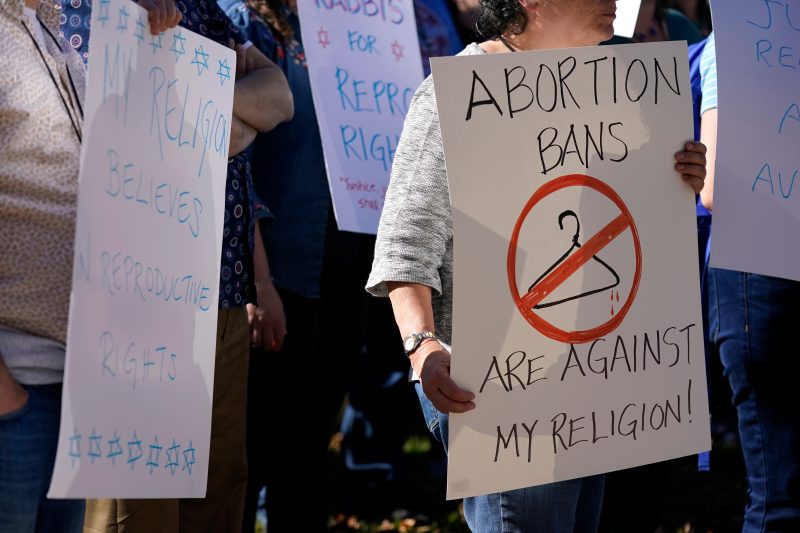A Missouri judge ruled that an abortion ballot measure is invalid because it did not properly note what laws it would repeal, potentially restricting it from reaching a November vote.
Cole County Circuit Judge Christopher Limbaugh said the measure’s proponents did not sufficiently inform voters who signed the proposed amendment of its ramifications, echoing arguments made in a legal challenge by antiabortion advocates.
Limbaugh, appointed by Gov. Mike Parson (R) after serving as his general counsel, wrote in the Friday ruling that he would not issue an injunction ordering Missouri Secretary of State Jay Ashcroft (R) to remove the measure until Tuesday, when the ballots are scheduled to be printed, allowing proponents of the measure known as Amendment 3 to file an appeal.
Missourians for Constitutional Freedom vowed to do just that.
“The court’s decision to block Amendment 3 from appearing on the ballot is a profound injustice to the initiative petition process and undermines the rights of the nearly 380,000+ Missourians who signed our petition demanding a voice on this critical issue,” Rachel Sweet, the group’s campaign manager, said in a statement.
If passed, Amendment 3 would permit the procedure until fetal viability, or about 24 weeks, the point in a pregnancy when a fetus can survive outside the womb.
Missourians for Constitutional Freedom, an abortion rights group, is seeking to enshrine in the state constitution “the right to make and carry out decisions about all matters relating to reproductive health care,” including abortion care. Missouri has a near-total ban on abortion.
Depending on what a higher court rules, Missouri voters could join those in at least nine other states in deciding the fate of abortion rights in November with constitutional amendments on the ballot in a pivotal election year. That includes several measures in battleground states that will be key to deciding control of the White House and Congress.
Since the Supreme Court overturned Roe v. Wade in June 2022, every ballot measure that has sought to preserve or expand abortion access has passed, even in more conservative states. Measures that have sought to restrict abortion access, meanwhile, have failed.
Because Amendment 3 did not address the full scope of which state laws would be affected, Limbaugh said the measure was “insufficient,” and a “blatant violation” of the requirements.
Mary Catherine Martin, an attorney for the antiabortion legal group Thomas More Society, praised the judge’s ruling.
She also argued that the scope of the amendment was too wide and that Missouri ballot measures must focus narrowly on one issue. Missouri has what’s known as a “single-subject rule,” which requires constitutional ballot initiatives to address only one issue.
“This goes far beyond abortion,” said Martin, who helped file the legal challenge. “It’s not just an abortion amendment.”
She argued the measure’s inclusion of the phrase “all matters of reproductive health care” means it covers more than just abortion access. Arguments could be made in front of an appeals court or the state Supreme Court as late as Tuesday morning, Martin said.
She said she hopes the next judgment will be the final one.
While Sweet said Friday’s ruling was a “setback,” she called for a swift resolution ahead of the Tuesday deadline.
“Our fight to ensure that voters — not politicians — have the final say is far from over,” she said.
A slew of antiabortion groups have also filed legal challenges seeking to remove abortion measures from the November ballot. Many of those cases have already made their way through court, though some are ongoing.
Arizona’s top court, for example, ruled last month that Proposition 139 was legal and could appear on the ballot after abortion rights groups collected about 578,000 signatures in support of the measure that would enshrine the right to an abortion in the state’s constitution. A South Dakota measure survived a legal challenge to appear on the ballot, though a trial over its validity is scheduled for the end of September, the Searchlight news outlet reported.

